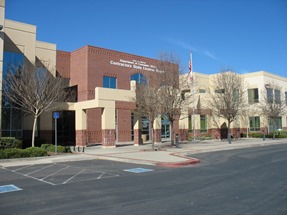New Laws - 1998
Final Summary of the 1997-98 Legislative Session.
This is a summary of the more significant legislation that the Contractors State License Board has followed during the 1997-98 legislative session. All of the bills in the summary have been signed into law (chaptered), and become effective on January 1, 1998. All legislation that may particularly impact the operations of CSLB licensees has been highlighted. Copies of chaptered bills are available at www.leginfo.ca.gov or by calling (916) 445-2323.
AB 206 – (Hertzberg - Chapter 416) - The Citizen Complaint Act of 1997; Implementation Date: On or before July 1, 1998 (or within six months of establishing an Internet website) - All State agencies with an Internet website must provide Internet access to consumer complaint forms along with downloading and filing instructions. The bill also requires State agency websites to include the ability for the public to register complaints concerning agency performance.
AB 772 – (Margett - Chapter 469) This bill amends the Contractors License Law provisions concerning construction related judgements by allowing the CSLB to suspend, rather than cancel, certain licenses, such as partnerships. Prior to AB 772, Business and Professions Code § 7071.17 required the cancellation of licenses associated with a licensee who has been named in an unsatisfied construction related civil court judgment (under certain conditions). The provisions of AB 772 will allow licensees the opportunity to settle civil disputes and reinstate the affected licenses.
AB 1213 – (Miller - Chapter 888) Requires the CSLB to establish a certification program for home improvement contractors by January 1, 1999. On and after July 1, 2000, a contractor will be prohibited from engaging in the business of home improvements or providing home improvement goods or services, either as a prime contractor or a subcontractor, unless the contractor is certified as a home improvement contractor. In order to obtain the home improvement certification, the qualifier for the license must pass an open book exam. No other certification requirements are anticipated.
Note: The Contractors license law defines a home improvement project, in pertinent part, as: ". . .[T]he repairing, remodeling, altering, converting, or modernizing of, or adding to, residential property and shall include, but not be limited to, the construction, erection, replacement, or improvement of driveways, swimming pools, including spas and hot tubs, terraces, patios awnings, storm windows, landscaping, fences, porches, garages . . . and other improvements of the structures or land which is adjacent to a dwelling house."
Applicants for the home improvement certification must hold a current and valid license and submit an application as prescribed by the Registrar. The Board has determined that no fees will be charged for the home improvement certification. The program will be sunset on January 1, 2004 unless continued by additional legislation.
SB 299 – (Mountjoy - Chapter 334) - This is CSLB cleanup legislation and accomplishes the following:
- The legislature has maintained the provision of existing law which requires the CSLB to discipline contractors for failure to obtain building permits. However, the bill provides an amendment which will allow the CSLB to issue a citation for this violation, as opposed to existing law which requires suspension or revocation of licensure.
- The bill specifies that the earliest date for reapplication after denial of licensure is one year, unless the board prescribes an earlier date.
SB 825 – (Greene - Chapter 813) - This bill gives the Board a two-year sunset extension. The Board's inoperative date will be July 1, 2000 and the sunset date will be January 1, 2001 unless extended by other legislation. The bill also contains a requirement that the Board review the Specialty license classifications for potential consolidation or other appropriate action. A report on the Board's findings is due to the Department of Consumer Affairs and the legislature by October 1, 1998.
SB 857 – (Polanco - Chapter 812) - One of the more significant provisions of this bill revises the definition of the General Building (B) contractor license classification. The following points outline the scope of the projects that can be undertaken by General Building contractors effective January 1, 1998:
- General Building contractors may take a prime contract or subcontract that involves framing or carpentry.
- General Building contractors may take a prime contract or subcontract that involves at least two unrelated trades or crafts other than framing or carpentry. (Framing or carpentry cannot be counted as one of the two unrelated trades or crafts).
- General Building contractors may take a prime contract for a single Specialty trade (C36-Plumbing, C10-Electrical, C43-Sheet Metal, etc.) provided the work of the contract is subcontracted to a properly licensed Specialty contractor.
- General Building contractors holding a Specialty license classification may take any contract involving the scope of work that falls under the Specialty license classification.
SB 857 also specifies that, whenever a complaint against a licensee involves an expert witness that the CSLB has engaged for services, the CSLB must provide a copy of the expert's report to the complainant, the contractor against whom the complaint was filed, and any third parties with direct interest (e.g. surety companies), if requested. (Effective July 1, 1998)



